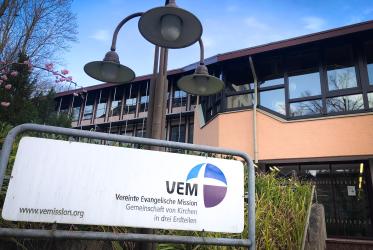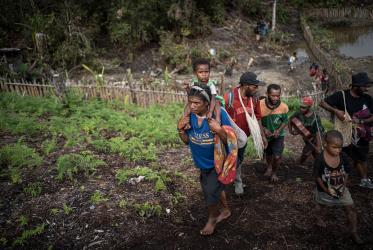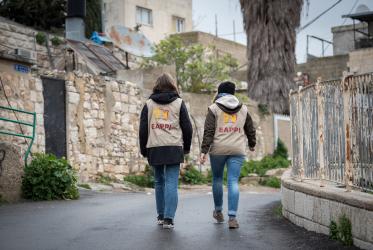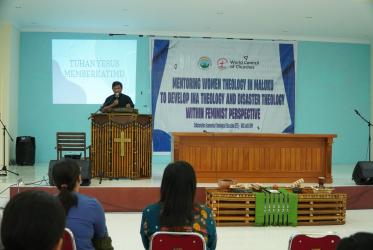“Prayer is our only answer.” Salvador and Samuel are crystal clear about it. Their faith is their defense against the violent threats they are suffering from in El Garzal, Colombia. It’s a kind of answer to the cruelties of the ongoing civil war in Colombia that shows a brave and hopeful way of living in peace.
We, a Dutch group of theology students of the Free University of Amsterdam, visited Colombia for a week full of seminars about conflict and reconciliation, held at the Colombian Mennonite Seminary, Bogotá, in March 2016.
We did some field trips and met many peacemakers as well as victims of the Colombian conflict. A trip to El Garzal, a village up in the north, was planned for the last days, as a kind of highlight of the program. “It is a real possibility that we won’t visit El Garzal”, they said to us several times during the week.
Unfortunately, a few days before we finally were to go there, armed men appeared in the community – as they had so many times before.
Reality had confronted us.
El Garzal is a farmers community of 340 families situated along the Magdalena River. Constant threats of paramilitary groups sent by a large landowner make life extremely complicated for the inhabitants.
The government has acknowledged them as the rightful owners of the land, but others claim those rights as well. Due to corruption and bureaucracy the land titles are not handed out. For 40 years the families of El Garzal have been fighting for them – nonviolently.
So, we can’t really say that the intrusion of the armed men which prevented our visit was an extraordinary situation for the local community. The purpose of the visit would have been to show solidarity to the families of El Garzal, to listen to their story and get a glimpse of their resistance against violence, through strong Christian faith.
But the whole plan could only have happened if there were no immediate threats. Unfortunately,Salvador, the pastor of the village, had to flee, once again. So it wasn’t possible for him to welcome us.
Many of Colombian communities share the experience of living under these circumstances. They’ve experienced years full of corruption, kidnapping, murder and other cruelties by rebel groups, paramilitaries and government. Each time, community life is left in shatters because others want to have the land that you own. Because of the ideas you might have. Because of simple acts of power.
We heard enough stories about this during the seminar week in Bogota. And sometimes it made me feel hopeless and sad. How can so much injustice be transformed into justice?
Stories of peace organizations sounded very good and on the higher level the government and FARC are designing a peace agreement. But will it help to overcome the past, the fear and the violence?
“Please, don’t try to understand our way of living, because you can’t from your position.” A young woman who has suffered a lot, said it clearly to me, when I said I could understand that she was angry about her situation.
So instead of going to El Garzal, we headed north, to the city of Barrancabermeja where we met with Salvador and a few other inhabitants of El Garzal. Some of them we had met already during the week of joint sessions. We talked to them about faith, about peacemaking and about their current situation.
Maybe the situation at that moment in El Garzal was for them unfortunately not extraordinary; the way the inhabitants are dealing with this for years already, however, is extraordinary.
It is a remarkable example of a pilgrimage of justice and peace. Pastor Salvador says: “The first time the big landowner threatened us to go away from our land, we started to fast and pray.” It was the only thing the people from El Garzal felt they needed to do.
They refused to arm themselves and fight back or to flee. They stayed in their village and felt supported by God, even though they had to face ongoing violence against them. At that moment it was an unknown farmers’ community in the jungle. Suddenly they started to get attention from different peace organizations. It helped them to gain support in the outside world and gave them courage to carry on living this way.
“Did you never ever have the slightest desire to pick up arms?”, we asked Salvador. – “No.”
“But how can you still overcome violence and injustice through this way of action?” – “Because I believe there are more people supporting the good than there are people supporting the bad.”







